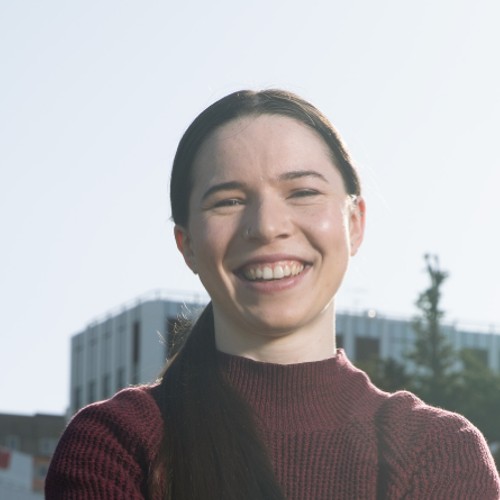Dr Trevor Bradley, Programme director
- trevor.bradley@vuw.ac.nz
- +64 4 463 5432
- MY 1101, Murphy Building, 21D Kelburn Parade, Wellington, 6012, New Zealand

Meet the lecturers on the Master of Criminology programme, find out who to contact for more details, and hear a student’s perspective on postgraduate Criminology.

Kāi Tahu
PhD candidate and assistant lecturer in Criminology
“There’s a beautiful culture of support within the postgraduate community here. I wouldn’t be where I am without the tautoko (support) of my fellow Criminology postgrads, and it makes studying long into the night much easier when you’ve got two or three buddies doing it with you!”
“A goal of mine in the next couple of years is to poipoi (nurture) Māori Criminology tauira (students) so that we can foster an increase in Māori postgraduate criminologists and undertake more research on justice issues with an indigenous lens,” Rebekah says.
“I would love to help encourage, support, and inspire more criminological research on Māori, by Māori, and for Māori to empower and uplift our indigenous communities.”
Rebekah has studied everything from the history of Rimutaka Prison to the impact of the Black Lives Matter protests in Aotearoa to the experiences of Māori prison officers to the implications of facial recognition technology and the surveillance of Māori faces in the justice system.
Rebekah also recommends trying a lot of different Criminology courses to find what area suits you.
“As well as picking up a lot of new knowledge, this is a great way for students to decide where their postgraduate studies and careers might take them.”
“I have really appreciated that not only are the lecturers and teaching staff exceedingly knowledgeable and compassionate, but their research extends past the ‘ivory tower’ of academia and actually assists in the betterment of communities at the forefront of the injustices that we see reported on,” Rebekah says.
Rebekah grew up with a parent who worked in the criminal justice system. She says the kōrero around issues of policing, surveillance, incarceration, and rehabilitation she was exposed to as a result of this work drew her to study Criminology.

PhD graduate in Criminology
“I chose to study postgraduate Criminology at Te Herenga Waka—Victoria University of Wellington for two reasons. Firstly, because of if its world-class teaching and research reputation. Secondly, and more importantly, because of the encouragement and support of the academic staff who have helped me in every stage of my academic journey from my undergraduate to my Master’s degree.”
Angus studied Criminology because he sought to understand a phenomenon that affects everyone, yet is experienced disproportionately by some people within our society.
“I wanted to learn and understand why certain people and groups are disproportionately affected by the criminal justice system, and to understand the wider causes of crime and harm.”
For Angus, Te Herenga Waka was the perfect place to study. The challenging content and the experience of the University’s academic staff helped him to hone his critical thinking and analytical skills.
Being a part of the School of Social and Cultural Studies allowed Angus to learn about and interact with students and staff from other disciplines.
“This was vital in forging interdisciplinary relationships and in helping me to look at my postgraduate research from new angles.”
Angus worked as a tutor and was involved in several research projects with academic staff. He worked in areas such as illicit commodities trafficking in the Pacific, prisoner of war camps in WWII, policing and police intelligence, drug-checking services at local music festivals, and more.
“I was fortunate enough to have really great research experiences working side-by-side with some of the world’s best criminologists.”
Previous
RequirementsNext
How to apply